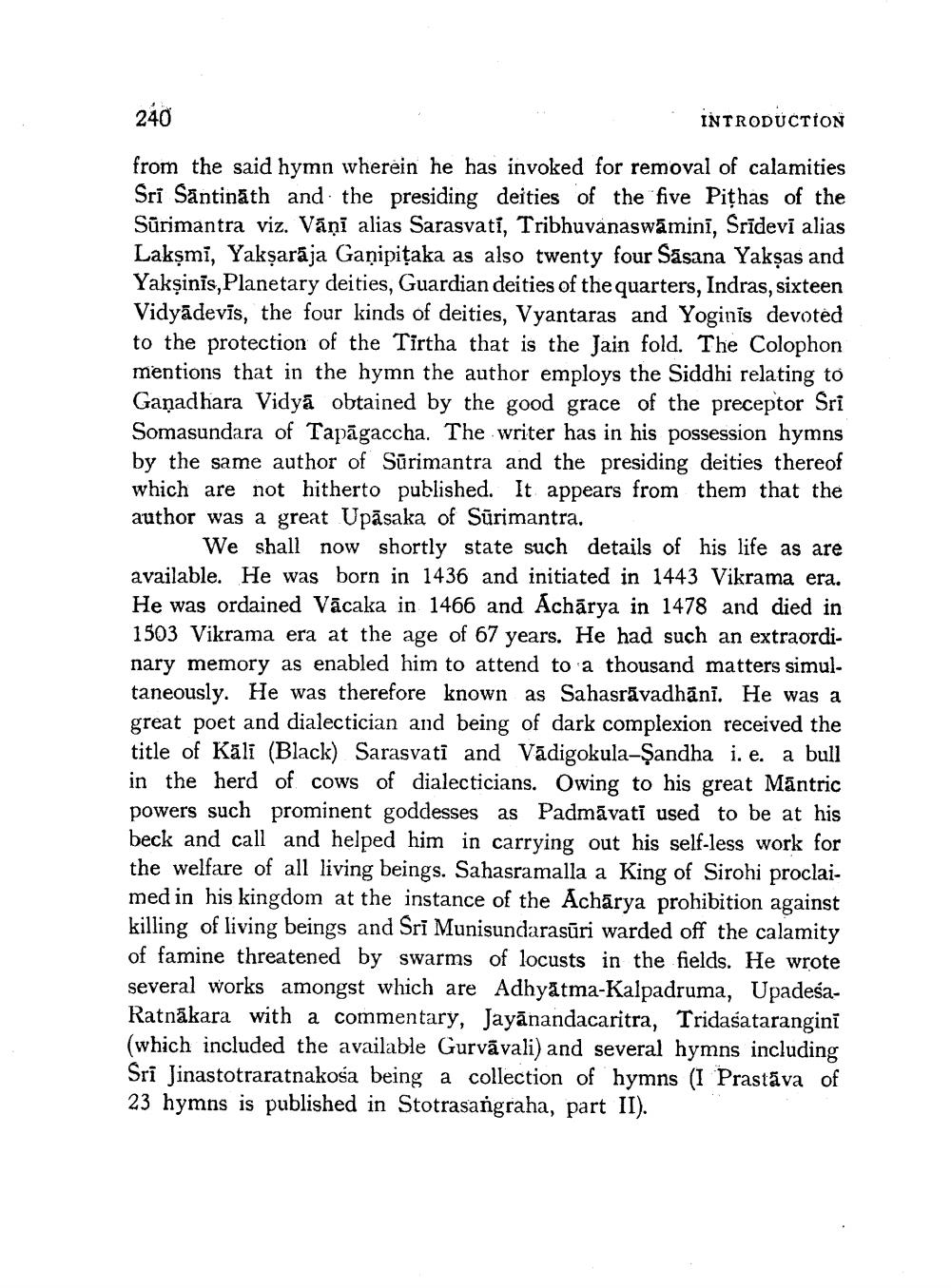________________
240
from the said hymn wherein he has invoked for removal of calamities Sri Santinath and the presiding deities of the five Pithas of the Sūrimantra viz. Vāņī alias Sarasvati, Tribhuvanaswāminī, Srīdevī alias Lakṣmi, Yakṣarāja Gaṇipiṭaka as also twenty four Sasana Yakṣas and Yakṣinis, Planetary deities, Guardian deities of the quarters, Indras, sixteen Vidyadevis, the four kinds of deities, Vyantaras and Yoginis devoted to the protection of the Tirtha that is the Jain fold. The Colophon mentions that in the hymn the author employs the Siddhi relating to Gaṇadhara Vidyā obtained by the good grace of the preceptor Sri Somasundara of Tapagaccha. The writer has in his possession hymns by the same author of Surimantra and the presiding deities thereof which are not hitherto published. It appears from them that the author was a great Upasaka of Surimantra.
INTRODUCTION
We shall now shortly state such details of his life as are available. He was born in 1436 and initiated in 1443 Vikrama era. He was ordained Vacaka in 1466 and Acharya in 1478 and died in 1503 Vikrama era at the age of 67 years. He had such an extraordinary memory as enabled him to attend to a thousand matters simultaneously. He was therefore known as Sahasrāvadhānī. He was a great poet and dialectician and being of dark complexion received the title of Kali (Black) Sarasvati and Vadigokula-Şandha i. e. a bull in the herd of cows of dialecticians. Owing to his great Mantric powers such prominent goddesses as Padmavati used to be at his beck and call and helped him in carrying out his self-less work for the welfare of all living beings. Sahasramalla a King of Sirohi proclaimed in his kingdom at the instance of the Acharya prohibition against killing of living beings and Sri Munisundarasuri warded off the calamity of famine threatened by swarms of locusts in the fields. He wrote several works amongst which are Adhyatma-Kalpadruma, UpadesaRatnakara with a commentary, Jayanandacaritra, Tridaśatarangini (which included the available Gurvavali) and several hymns including Sri Jinastotraratnakosa being a collection of hymns (I Prastava of 23 hymns is published in Stotrasangraha, part II).




